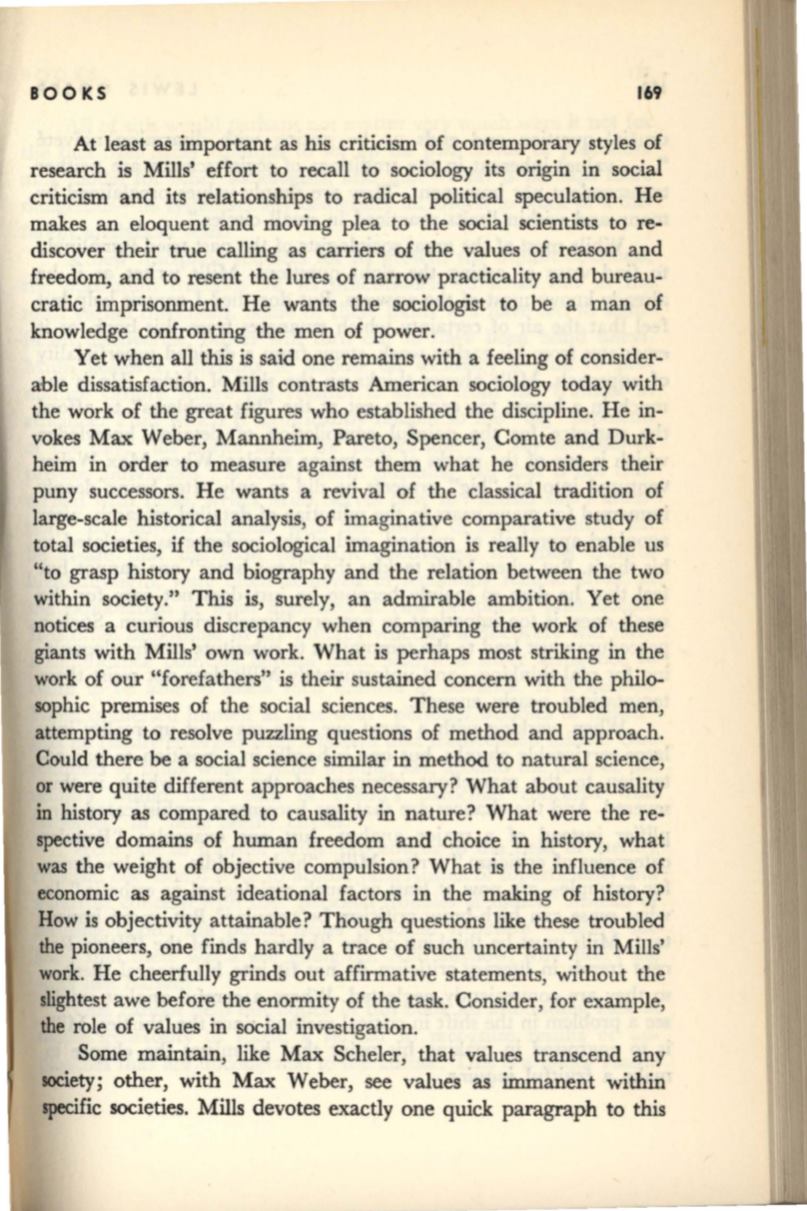
BOOKS
169
At least as important as his criticism of contemporary styles of
research is Mills' effort to recall to sociology its origin in social
criticism and its relationships to radical political speculation. He
makes an eloquent and moving plea to the social scientists to re–
discover their true calling as carriers of the values of reason and
freedom, and to resent the lures of narrow practicality and bureau–
cratic imprisonment. He wants the sociologist to be a man of
knowledge confronting the men of power.
Yet when all this is said one remains with a feeling of consider–
able dissatisfaction. Mills contrasts American sociology today with
the work of the great figures who established the discipline. He in–
vokes Max Weber, Mannheim, Pareto, Spencer, Comte and Durk–
heim in order to measure against them what he considers their
puny successors. He wants a revival of the classical tradition of
large-scale historical analysis, of imaginative comparative study of
total societies, if the sociological imagination is really to enable us
"to grasp history and biography and the relation between the two
within society." This is, surely, an admirable ambition. Yet one
notices a curious discrepancy when comparing the work of these
giants with Mills' own work. What is perhaps most striking in the
work of our "forefathers" is their sustained concern with the philo–
sophic premises of the social sciences. These were troubled men,
attempting to resolve puzzling questions of method and approach.
Could there
be
a social science similar in method to natural science,
or were quite different approaches necessary? What about causality
in
history as compared to causality in nature? What were the re–
spective domains of human freedom and choice in history, what
was the weight of objective compulsion? What is the influence of
economic as against ideational factors in the making of history?
How is objectivity attainable? Though questions like these troubled
the pioneers, one finds hardly a trace of such uncertainty in Mills'
work. He cheerfully grinds out affirmative statements, without the
slightest awe before the enormity of the task. Consider, for example,
the role of values in social investigation.
Some maintain, like Max Scheler, that values transcend any
society; other, with Max Weber, see values as immanent within
specific societies. Mills devotes exactly one quick paragraph to this


